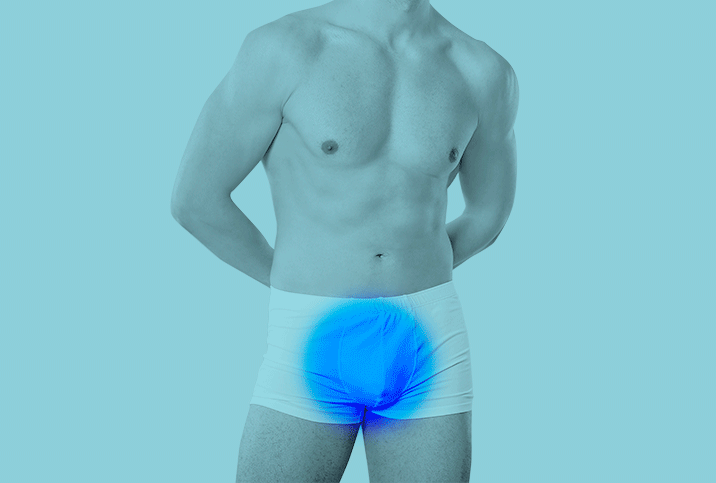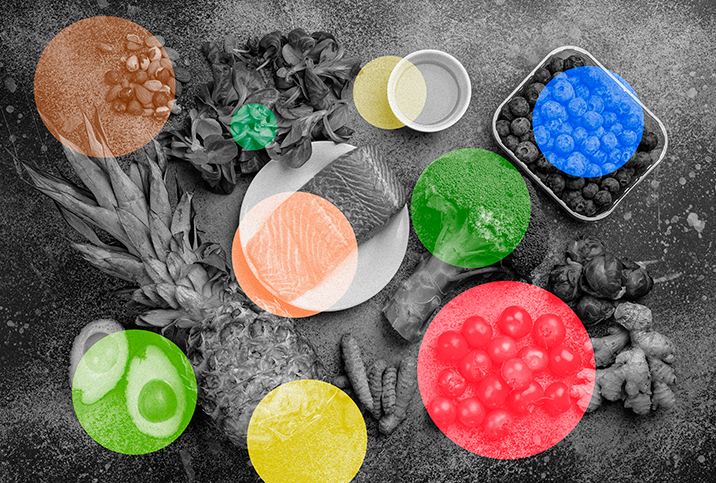Poor Circulation and Neuropathy Are Not Friends of the Penis

Everybody has a relative who grumbles about dietary restrictions: Dad pining for doughnuts, Mom going off caffeine, Uncle Robert complaining about giving up salt.
These kinds of lifestyle choices are challenging for sure, because we must forgo momentary pleasure for some vaguely perceived benefit in the distant future.
When it comes to men and blood sugar, the consequences of making poor choices can be brought home in a much more immediate, primal and visceral way: Do you want your penis to work?
The medical community has indicated a strong link between erectile dysfunction (ED) and diabetes for some time. About 18 million men in the United States have diabetes, and the estimated prevalence of erectile dysfunction in those men ranges from 35 percent to 75 percent, according to the Handbook of Clinical Neurology. Some doctors suggest screening men for diabetes if they present with erectile problems, and vice versa.
Diabetes is closely tied to ED due to neuropathy, or nerve damage, and vascular disease, which affects circulation, according to Richard Heppe, M.D., who works with the Urology Center of Colorado in Denver.
The blood will flow—or not
Men may wonder how poor blood flow and nerve damage impair their ability to get an erection. Blood flow to the small arteries that lead to the penis is essential for erections. Anything that interferes with this flow can impede the penis from getting fully hard—and high blood sugar does this.
About 30 percent of people older than age 50 who have diabetes also have peripheral arterial disease, according to estimates by the American Diabetes Association. This is a condition in which the body has difficulty transporting blood to the extremities: the hands, the feet and—you guessed it—the penis.
"Over time, chronic hyperglycemia, or high blood sugar, has a negative effect on the lining of the blood vessels or the endothelium," said Neel Parekh, M.D., a urologist with the Cleveland Clinic. "The same way that diabetics are prone to cardiovascular disease, they're prone to ED. The lining of the blood vessels are damaged, and they aren't able to relax and allow for adequate blood flow."
Giddy urologist Dr. Edwin Morales explains the connection between diabetes and erectile dysfunction in the ED Guide video series. Click here to watch the video.
A nervous wreck
Impaired blood flow to the penis isn't the only issue that accompanies diabetes. Another negative effect of vascular disease is the damaged blood vessels don't have the capacity to provide sufficient blood flow to the nerves.
"[High blood sugar] has a detrimental effect on nerve function," Heppe said. "You know how a lot of diabetics have numb feet? They have all kinds of foot problems, because they can't feel their feet properly."
Healthy nerves are a key component of erectile function. If the tiny nerves in the penis don't receive enough blood to remain healthy, a man can face dire consequences in the bedroom.
"When you have this microvascular disease, you don't have enough blood flow to the small nerves in your toes and hands and fingers," Parekh said. "This is the same problem we run into with the nerves in the penis: They're very small—even smaller than the nerves in the fingers and the toes—and the ischemic damage caused by the diabetes leads to an impairment of the sensation in the penis."
Other complications of diabetes
On top of all this, studies show there's a boatload of comorbidities that go along with diabetes.
Up to 75 percent of adults with diabetes also have high blood pressure. Health problems, such as heart disease, obesity, high cholesterol and other risk factors for sexual dysfunction, are also common for people with diabetes.
One often overlooked comorbidity that goes along with diabetes in men is low testosterone. It's unclear which came first, the diabetic chicken or the low-T egg, but the connection is undeniable.
"There have been some studies that have shown that if a man is prediabetic and they have low testosterone, treating their low testosterone actually reduces the likelihood of them converting to diabetes," Parekh said.
Deal with it
The good news is, you can prevent the worst effects of high blood sugar by making some simple lifestyle changes. And there's help out there—you just have to seek it out.
"A big thing we harp on here is how reluctant men are to seek medical care," Parekh said. "So it's important to know the warning signs: urinary frequency and waking up at night to urinate more often, tingling or numbness in the hands or feet, sometimes the vision changes, or fatigue, sometimes there's even weight loss."
The bad news is, if you've had high blood sugar for a significant length of time without treating it, the blood vessel and nerve damage is probably irreversible.
"Most likely, once the damage is done, it's not going to get any better," Heppe said. "The best way to prevent complications from diabetes is having good [blood sugar] control from the beginning."
High blood sugar and diabetes don't have to spell doom—for you or your penis.
Get in the habit of reducing your sugar intake, and watch out for sneaky high-glycemic foods, such as white bread and pasta. You'll help your blood flow and your erections by getting out for some exercise a few times a week.
Because at the end of the day, which would you rather have: doughnuts or a working penis?


















